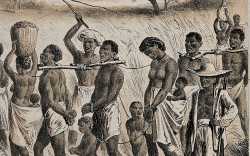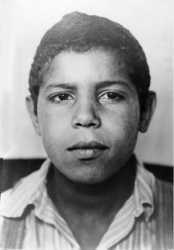Quoted By: >>11758484
Donations to the archive would be appreciated to help fund our server hardware & storage drives. We are looking for developers to help build new software and archives, discuss here.
Threads by latest ghost replies - Page 44
Quoted By:
Are afghans proud of their ancient hindu heritage or do like islam more? Afganistan was a very important cultural hub and part of the indian subcontinent for a long time. Mentioned in every scripture and historical record from india, most famous places even had sanskrit names. They were responsible for spreading Buddhism across asia and had made huge scientific discoveries that built the foundation to modern society.
The raping started at the start of the 900s CE when they were declared kaffirs and beheaded, getting forced to accept to a foreign ideology against their will.
Are afghans proud of their ancient heritage and wonder or are they proud of islamic achievements made far away that had nothing to do with them? Do they find ancient hindu-buddist kings that built the country more relatable or do they prefer the calpihs and quran's prophets instead?
The raping started at the start of the 900s CE when they were declared kaffirs and beheaded, getting forced to accept to a foreign ideology against their will.
Are afghans proud of their ancient heritage and wonder or are they proud of islamic achievements made far away that had nothing to do with them? Do they find ancient hindu-buddist kings that built the country more relatable or do they prefer the calpihs and quran's prophets instead?
Quoted By:
Is it true no other kind of slavery was as terrible for the average slave than the trans-atlantic slave trade or it is just woke academics whitewashing any other kind of slavery to make European empires look worse than other non-white empires?
593KiB, 700x5477, Hidden Horrors Japanese War Crimes In World War Ii By Yuki Tanaka.gif
Quoted By:
After invading Manchukuo Russian soldiers repeatedly gang raped Japanese girls and nurses, dismissing the complains of Japanese officers. Japanese girls in Manchukuo called Zanryu Fujin were taken as wives by Chinese men.
https://books.google.fr/books?id=eWClDwAAQBAJ&pg=PT99&dq=Every+day+Russian+soldiers+would+come+and+rape+a+group+of+them+%5BJapanese+nurses%5D.+Japanese+officers+made+many+official+complaints+to+the+Soviet+military+headquarters+about+these+incidents+but+to+no+effect.+In+fact,+the+Soviet+forces+responded+to+these+complaints+by+asking+the+Japanese+officers+to+provide+a+number+of+nurses+as+prostitutes,+as+they+believed+this+would+minimize+the+number+of+rapes+by+Soviet+soldiers.&hl=en&newbks=1#v=onepage&q=Every%20day%20Russian%20soldiers%20would%20come%20and%20rape%20a%20group%20of%20them%20%5BJapanese%20nurses%5D.%20Japanese%20officers%20made%20many%20official%20complaints%20to%20the%20Soviet%20military%20headquarters%20about%20these%20incidents%20but%20to%20no%20effect.%20In%20fact%2C%20the%20Soviet%20forces%20responded%20to%20these%20complaints%20by%20asking%20the%20Japanese%20officers%20to%20provide%20a%20number%20of%20nurses%20as%20prostitutes%2C%20as%20they%20believed%20this%20would%20minimize%20the%20number%20of%20rapes%20by%20Soviet%20soldiers.&f=false
American soldiers who landed in Japan and occupied all of the country in 1945 immediately started mass raping Japanese girls and women.
https://books.google.fr/books?id=eWClDwAAQBAJ&pg=PT100#v=onepage&q&f=false
https://uncensoredhistory.blogspot.com/2012/10/rape-abuse-japanese-women-american-soldiers.html
Australian, New Zealand and Indian soldiers under British command also participated in rape of Japanese women in the sectors of Japan they occupied like Hiroshima
https://books.google.fr/books?id=eWClDwAAQBAJ&pg=PT101#v=onepage&q&f=false
This was right after the firebombing of Japan. Entire cities of Japanese civilians were burned to death
https://en.wikipedia.org/wiki/Bombing_of_Tokyo
https://books.google.fr/books?id=eWClDwAAQBAJ&pg=PT99&dq=Every+day+Russian+soldiers+would+come+and+rape+a+group+of+them+%5BJapanese+nurses%5D.+Japanese+officers+made+many+official+complaints+to+the+Soviet+military+headquarters+about+these+incidents+but+to+no+effect.+In+fact,+the+Soviet+forces+responded+to+these+complaints+by+asking+the+Japanese+officers+to+provide+a+number+of+nurses+as+prostitutes,+as+they+believed+this+would+minimize+the+number+of+rapes+by+Soviet+soldiers.&hl=en&newbks=1#v=onepage&q=Every%20day%20Russian%20soldiers%20would%20come%20and%20rape%20a%20group%20of%20them%20%5BJapanese%20nurses%5D.%20Japanese%20officers%20made%20many%20official%20complaints%20to%20the%20Soviet%20military%20headquarters%20about%20these%20incidents%20but%20to%20no%20effect.%20In%20fact%2C%20the%20Soviet%20forces%20responded%20to%20these%20complaints%20by%20asking%20the%20Japanese%20officers%20to%20provide%20a%20number%20of%20nurses%20as%20prostitutes%2C%20as%20they%20believed%20this%20would%20minimize%20the%20number%20of%20rapes%20by%20Soviet%20soldiers.&f=false
American soldiers who landed in Japan and occupied all of the country in 1945 immediately started mass raping Japanese girls and women.
https://books.google.fr/books?id=eWClDwAAQBAJ&pg=PT100#v=onepage&q&f=false
https://uncensoredhistory.blogspot.com/2012/10/rape-abuse-japanese-women-american-soldiers.html
Australian, New Zealand and Indian soldiers under British command also participated in rape of Japanese women in the sectors of Japan they occupied like Hiroshima
https://books.google.fr/books?id=eWClDwAAQBAJ&pg=PT101#v=onepage&q&f=false
This was right after the firebombing of Japan. Entire cities of Japanese civilians were burned to death
https://en.wikipedia.org/wiki/Bombing_of_Tokyo
Quoted By:
>4th most populous country in the world
>Projected to be the 4th biggest economy in 2050
Why are we barely know anything about this shithole? What are their notable achievement in history?
>Projected to be the 4th biggest economy in 2050
Why are we barely know anything about this shithole? What are their notable achievement in history?
Quoted By: >>11727817
>As of 1955, African-American soldiers in Germany had fathered about 5,000 children in Occupied Germany, making up a significant minority of the 37,000 illegitimate children of US soldiers overall.
Given all the propaganda absorbed about racial purity they absorbed over the years, how did German men feel when they saw their women's eyes light up and knees get weak in the presence of our bucks?
Given all the propaganda absorbed about racial purity they absorbed over the years, how did German men feel when they saw their women's eyes light up and knees get weak in the presence of our bucks?
Quoted By:
>Matthew 27:3-8
>When Judas, who had betrayed him, saw that Jesus was condemned, he was seized with remorse and returned the thirty pieces of silver to the chief priests and the elders. “I have sinned,” he said, “for I have betrayed innocent blood.” “What is that to us?” they replied. “That’s your responsibility.” So Judas threw the money into the temple and left. Then he went away and hanged himself. The chief priests picked up the coins and said, “It is against the law to put this into the treasury, since it is blood money.” So they decided to use the money to buy the potter’s field as a burial place for foreigners. That is why it has been called the Ḥaqel D'ma (field of blood) to this day.
- is remorseful
- throws money into the temple
- commits suicide
>Acts 1:18-19
>With the payment he received for his wickedness, Judas bought a field; there he fell headlong, his body burst open and all his intestines spilled out. Everyone in Jerusalem heard about this, so they called that field in their language Akeldama, that is, field of blood.
- no remorse
- uses money to buy some land
- dies due a freak accident
Acts = false scripture, Christians can't admit their bible is broken AF, also without the book of Acts, Paul of Tarsus is just another persecutor of the faith.
>When Judas, who had betrayed him, saw that Jesus was condemned, he was seized with remorse and returned the thirty pieces of silver to the chief priests and the elders. “I have sinned,” he said, “for I have betrayed innocent blood.” “What is that to us?” they replied. “That’s your responsibility.” So Judas threw the money into the temple and left. Then he went away and hanged himself. The chief priests picked up the coins and said, “It is against the law to put this into the treasury, since it is blood money.” So they decided to use the money to buy the potter’s field as a burial place for foreigners. That is why it has been called the Ḥaqel D'ma (field of blood) to this day.
- is remorseful
- throws money into the temple
- commits suicide
>Acts 1:18-19
>With the payment he received for his wickedness, Judas bought a field; there he fell headlong, his body burst open and all his intestines spilled out. Everyone in Jerusalem heard about this, so they called that field in their language Akeldama, that is, field of blood.
- no remorse
- uses money to buy some land
- dies due a freak accident
Acts = false scripture, Christians can't admit their bible is broken AF, also without the book of Acts, Paul of Tarsus is just another persecutor of the faith.
Quoted By:
https://twitter.com/nodutdol/status/1423698385190674439
ThreadThread
On Aug. 6 & 9, 1945, the U.S. dropped atomic bombs on Hiroshima & Nagasaki.
The Korean A-Bomb Victims' Association estimates 100,000 of the 700,000 killed or injured by the bombs were Korean.
Korean A-bomb survivors are still fighting for justice. This is their story.
https://twitter.com/hermit_hwarang/status/1423707794218303493
Little known fact: 1 in 4 people killed immediately by the US atomic bombings of Hiroshima & Nagasaki were Koreans.
Korean A-bomb survivors have struggled for decades against the Flag of South Korea, Flag of Japan&Flag of United States govts. What do they want? Recognition, reparations, & US denuclearization. Thread:
https://twitter.com/AskAKorean/status/1424816640085143554
Many of the conscripted laborers in Hiroshima were from a single town in Korea: Hapcheon, Gyeongsangnam-do. As a result, ~70% of Korean victims of atomic bombing are from Hapcheon. As recently as five years ago, over 600 survivors were living in that town. https://hani.co.kr/arti/area/area_general/744929.html
ThreadThread
On Aug. 6 & 9, 1945, the U.S. dropped atomic bombs on Hiroshima & Nagasaki.
The Korean A-Bomb Victims' Association estimates 100,000 of the 700,000 killed or injured by the bombs were Korean.
Korean A-bomb survivors are still fighting for justice. This is their story.
https://twitter.com/hermit_hwarang/status/1423707794218303493
Little known fact: 1 in 4 people killed immediately by the US atomic bombings of Hiroshima & Nagasaki were Koreans.
Korean A-bomb survivors have struggled for decades against the Flag of South Korea, Flag of Japan&Flag of United States govts. What do they want? Recognition, reparations, & US denuclearization. Thread:
https://twitter.com/AskAKorean/status/1424816640085143554
Many of the conscripted laborers in Hiroshima were from a single town in Korea: Hapcheon, Gyeongsangnam-do. As a result, ~70% of Korean victims of atomic bombing are from Hapcheon. As recently as five years ago, over 600 survivors were living in that town. https://hani.co.kr/arti/area/area_general/744929.html
Quoted By:
What's the history of white European settlement in Indonesia and their descendants?
Quoted By:
Why was West Papua invaded by Indonesia in the 1960s?
https://desuarchive.org/his/thread/11551794/#q11552449
https://desuarchive.org/his/thread/11551977/#q11551977
https://desuarchive.org/his/thread/11551794/#q11552449
https://desuarchive.org/his/thread/11551977/#q11551977









